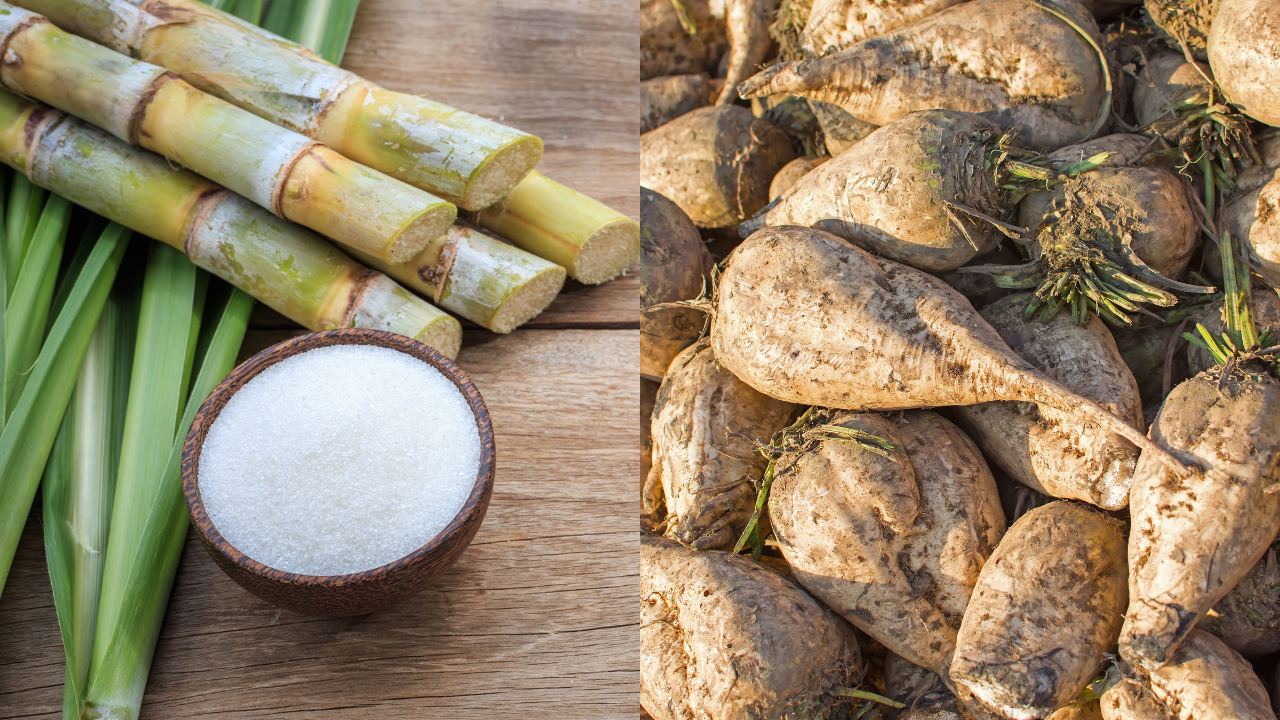Understanding beet sugar vs cane sugar helps buyers make informed choices about their sugar preferences.
Understanding beet sugar vs cane sugar helps buyers make informed choices about their sugar preferences.
Blog Article
Discover the Uses and Advantages of Beet Sugar Vs Cane Sugar in Your Daily Diet Plan
Discovering the unique top qualities of beet and cane sugar exposes more than just their sweetening capabilities; it highlights their one-of-a-kind effect on health and cookeries. Beet sugar, known for its subtle taste, is typically preferred in delicate treats, whereas cane sugar, with its hint of molasses, includes splendor to robust meals. Each type holds its own dietary account and glycemic ramifications, inviting a deeper understanding of their roles in a balanced diet plan and lasting intake practices.
Origin and Production Procedures of Beet and Cane Sugar

The unique environments and dirt types needed for expanding sugar beets and sugarcane add to distinctions in their farming techniques and geographical circulation, affecting the economics and sustainability of their production. beet sugar vs cane sugar.
Nutritional Comparison In Between Beet Sugar and Cane Sugar
In spite of stemming from different plants, beet sugar and cane sugar are nutritionally very similar, both largely containing sucrose. Each provides regarding 4 calories per gram, translating to about 16 calories per tsp. Structurally, both sugars are made up of roughly 99.95% sucrose, with marginal quantities of various other compounds like dampness and trace minerals, which do not dramatically modify their dietary accounts.

Ultimately, when picking between beet sugar and cane sugar based on nutritional material alone, both deal identical benefits and downsides as they are essentially forms of the same particle-- sucrose, offering quick energy without various other nutrients.
Effect On Health And Wellness: Glycemic Index and Caloric Material
Exploring better right into the impacts of beet sugar and cane sugar on health, it is very important to consider their glycemic index and caloric content. Both sugars are classified as sucrose, which includes sugar and fructose. This composition leads them to have a similar effect on blood sugar level levels. The glycemic index (GI) of both beet and cane sugar is around 65, classifying them as high-GI foods, which can create quick spikes in blood glucose levels. This is a vital element for people managing diabetic issues or those trying to stabilize their energy levels throughout the day.
Each type of sugar contains around 4 calories per gram, making their calorie web content matching. For those keeping track of caloric intake, specifically when taking care of weight or metabolic health conditions, comprehending this equivalence is vital (beet sugar vs cane sugar). Nevertheless, excessive usage of any high-calorie, high-GI food can contribute to health and wellness issues such as excessive weight, heart problem, and insulin resistance.
Environmental and Economic Considerations of Sugar Production
Beyond wellness impacts, the production of beet and cane sugar additionally increases considerable environmental and financial worries. Sugar beet farming has a tendency to need cooler climates and has a lower geographical footprint contrasted to sugar cane, which grows in exotic areas. Both plants are extensive in terms of water usage and land occupation, possibly leading to logging and water scarcity. Financially, the global sugar market is highly unpredictable, influenced by changes in worldwide trade policies Read More Here and subsidies. Lots of nations incentivize sugar manufacturing with economic assistance, skewing market hop over to these guys rates and influencing small farmers adversely.
Furthermore, making use of pesticides and fertilizers in both beet and cane sugar growing can result in soil destruction and pollution, further affecting biodiversity and local water bodies (beet sugar vs cane sugar). The choice between cultivating sugar beet or cane commonly pivots on neighborhood ecological problems and financial aspects, making the sustainability of sugar production a complicated problem
Culinary Applications and Taste Distinctions
While the environmental and economic elements of sugar production are without a doubt considerable, the choice in between beet and cane sugar likewise influences cooking applications and flavor accounts. Beet sugar, obtained from the sugar beet plant, is recognized for its incredibly neutral preference.
Cane sugar, extracted from sugarcane, typically preserves molasses traces, which present a distinctive richness and depth. The small variant in dampness web content in between beet and cane sugar can influence the texture and consistency of dishes, making cane sugar a favored option for particular dishes that profit from its one-of-a-kind residential or commercial properties.

Verdict
To conclude, both beet and cane sugar have distinctive beginnings and manufacturing procedures, supplying comparable dietary accounts with minor distinctions in salt content and flavor. While their influence on wellness, specifically regarding glycemic index and calories, is comparable, the choice in between them usually steams down to ecological, financial aspects, and certain cooking requirements. click reference Comprehending these elements can direct consumers in making educated choices that line up with their health objectives and taste preferences.
Report this page